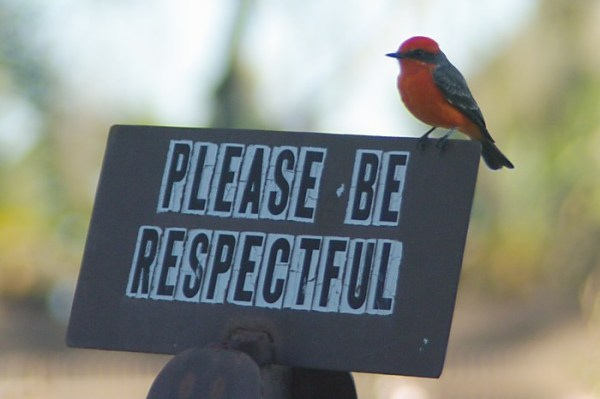Invisible threads are the strongest ties. – Friedrich Nietzsche
Coincidence and opportunity continue to fortuitously collide as I aim to development a whole school vision and strategy. Whilst maintaining a sharp focus on Teaching, Learning and Assessment and school accountability, leading on systems and processes, I am attempting to bring into focus my thinking on developing cultural capital with Peter Druckers words ringing in my ears. A vision that is very quickly emphasising the importance of values and virtues or what is referred to as an Values based Education (VbE). Meanwhile the SoS continues to back character, the expansion of the National Citizen Service and a significant national mentoring programme.
[This is where I started. If you want to accelerate your understanding than access the Future Learn course. What is Character? Virtue Ethics in Education.
Interestingly, in re-reading this post I noticed that I had not considered what Character is, nor what Character Education is.
Character – a set of personal qualities or dispositions that evoke specific emotions, inform motivation and guide conduct.
Character Education – an umbrella term for all explicit and implicit educational activities that helps young people develop positive personal qualities called virtues.
Which then allow us to pick up the conversations with Ian Morris.]
Friday I took the opportunity to discuss values and virtues with Ian Morris, a colleague from The Wellington College who recently returned from a sabbatical at the Jubilee Centre. Ian kindly answered my questions and offered three important clarifications.
First Ian offered four categories of value or virtue, giving consideration to these four categories would ensure breath and balanced; Performance, Moral, Civic and Intellectual.
We used these four categories to review our current RESPECT pledge, which suggested we may need to revisit the breadth and balance of our pledge in future as it was imbalanced.
- Moral – ‘Doing the right thing,’ courage, self-discipline, compassion, gratitude, humility, justice and honesty.
[These are virtues that enable us to respond well to situations in any area of experience.]
- Civic – ‘Being engaged and responsible’ service, citizenship and volunteering.
[These are the virtues which are necessary for engaged and responsible citizenship and assist in the flourishing of each person and promote the common good of society.]
- Performance – ‘Being your best’ resilience, determination, confidence and teamwork.
[These virtues are essentially the qualities that enable us to manage our lives effectively. (These virtues should derive their ultimate value in being enablers and vehicles of the moral virtues.)]
- Intellectual – ‘Thinking it Through,’ autonomy, reasoning, perseverance and curiosity.
[These are the virtues which are necessary for right action and correct thinking. These intellectual virtues are required for the pursuit of knowledge, truth and understanding and include how to interpret, analyse, evaluate, compare and judge, all essential to a well formed mind that reasons well.]
Second, we discussed the “within,” “beyond,” or “within and beyond,” debate. It is often tricky when both of you agree, as one of you is not required. We agreed that recognising wherever the “values and virtues” are demonstrated is a positive thing.
Thirdly, Ian is very clear. Values can be taught. I had previously read about the Caterpillar process – Stop. Notice. Look. Listen. Change. It is not too different to the emotional development of Riley, the young girl from Inside Out. Moreover, that value education was as much about values as an exploration of “how right” a decision is. For example, “loyalty to friends and honesty with staff.”
As teachers, we all accept that change can be fleeting, temporary and it can even dissolve and the old-self reappear, though we accept the aim of the investment is a process is transformation in each pupil and a tangible change is the culture of the school. From my understanding, this is be enacted as we speak at Highbury Grove, as he attempts to move the school from Plantation to Rain Forest thinking.
Ian introduced me to the concept of “phronesis” (good sense), an emotional understanding or the ability to discern how or why to act virtuously and encourage virtue in others. I need to do a little more than a cursory read of a Wikipedia entry and will come back to this at a later date.
As for “change.” There is clearly a benefit to students recording their engagement with values and virtues, certainly, the Jubilee Centre encourages reflection at each stage of the process. I believe that our Diploma framework and multi-modal evidence framework presents an excellent opportunity to reflect as well as being in itself, rewarding, creative and support wider goals of improving communication. As well as collecting qualitative evidence, we also collect quantitative survey evidence termly. Though I see strengths and weaknesses in both, my interest lies in the degree of reporting consistency (though not ignorant to my professional bias towards the important of evidence based teaching and professional development).
With a little digging, I find that the very value of “values and virtues” has been investigated. It is clear, that of the top fine reported values, there is a steer towards moral and civic values.
- Empathy – moral
- Honesty – moral
- Respect – civic
- Integrity – moral
- Sense of community – civic
Which leads to the question, ensuring courage, contextual reference, align with one’s on value structure, which values do you promote as a school leader in order to develop well-rounded, confident, happy and resilient young people, to boost their academic attainment, employability and ability to engage in society as active citizens.
Which leads me to the conclusion I will have to review the four words of laboured over selecting to define my due north and frame my first attempt at a whole school vision. These four values, I fear, may not offer balance across of the four domains and would need to flex to the needs of the school and the community.
BELONG – RESPECT – ASPIRE – ACHIEVE


